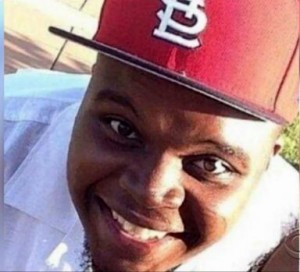 Like so many others this week, I feel angered, saddened, and almost defeated by the non-indictment of Darren Wilson for his murder of Michael Brown. People are taking to the streets, to social media, to workplace and public debate.
Like so many others this week, I feel angered, saddened, and almost defeated by the non-indictment of Darren Wilson for his murder of Michael Brown. People are taking to the streets, to social media, to workplace and public debate.
At the same time, Bill Cosby shares race-fueled headlines. Party People—a play about the legacy of the Black Panthers and current questions of solidarity, the sociopolitical climate, and “armchair activism”—continues at Berkeley Rep to sold-out, mostly white audiences. I saw it with my wife last Friday night. I’m also in the middle of reading
Let Us Now Praise Famous Men, James Agee’s 1936 poetic exploration of the lives of three poor, white Alabama sharecropper families that he conducted with FSA photographer Walker Evans. They never told their subjects their intentions or that they were media men; they didn’t provide them with a copy of the completed book, much less payment or royalties.
In sum, I’m a big mess. But if we’ve learned anything from suffragettes, the Civil Rights Movement, the Student Movement, and any movement geared toward leveling the playing field for the disenfranchised, it’s that we can never give up. If we do, “they” win.
As a parent of two who’s admittedly afraid of getting hurt and otherwise a big old large-crowd wuss, I’m not protesting in the streets. There is a vital need for loud, large-scale protest, even if I don’t and can’t participate. Activism comes in varied forms.
I can at times be that armchair activist, who, after spirited polemics on social media and carefully considered arguments with friends and co-workers, signs petitions and calls elected representatives. These efforts seem in vain after another brown life has been lost. What else, I ask myself, can I do?
Martin Luther King said, “I have the audacity to believe that people everywhere can have three meals a day for their bodies, education and culture for the minds and dignity, equality and freedom for their spirits.” So, I commit to working from the ground up, to greater action in the ways I best know how. Here’s my plan for trying to affect change in small ways, with the understanding that progress is often the sum of its parts.
- Create a documentary that examines the lives of three contemporary families living on the margins, but pay the participants, self-distribute, and have all proceeds go to the families. Hire people from the communities in which the three families live.
- Periodically go through my possessions and give them away instead of taking them to places like Goodwill or Salvation Army.
- Volunteer to read books to underserved kids.
- Hire an intern from an underserved community to work on my films, and pay them.
- Organize healthy food drives (see http://www.superfooddrive.org/resources/healthy-food-drive/).
- Donate to causes that provide food, educational opportunity, cultural engagement, and avenues of dignity to underserved youth.
- Subsidize a youth’s trip to go see a socially relevant play, movie, or art exhibit.
- Take a family in need out to a meal.
- Take another family in need clothes shopping.
- Stretch goal: Raise funds to sponsor someone’s health insurance premiums for a year, preferably a family.
- Other stretch goal: Go through the list again and again. Add to it, refine, and grow it into something that’s part of who I am and how I exist in the world.
I’ll quote Johnny Rotten: “Anger is an energy.” The powers that be may have riot gear, but we have the incessant and unwavering energy—and ability—to be in many, many places at once, whether it’s online, in the streets, or behind a camera. There aren’t enough tanks for that, are there?
I’ll report back.
